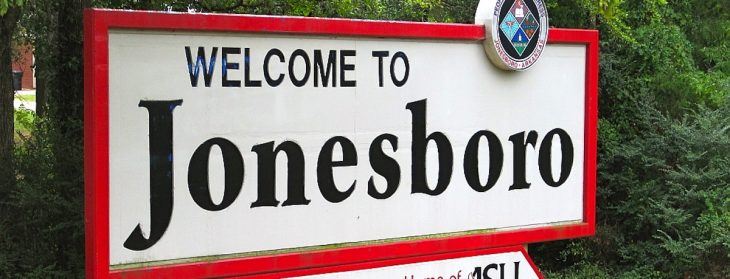Jonesboro City Water and Light looks for alternatives to coal generated power plants
by January 17, 2018 3:54 pm 1,552 views

Residents in Jonesboro were fed up with a continuing problem, and in 1906 they decided to do something about it. Sewer waste water spewed in the streets. A group of citizens formed an improvement district. The district bought the local water and electric utility and Jonesboro City Water and Light was born.
It’s survived more than 100 years, and it produces a surplus of electricity and the city has an abundant ground water supply, CWL special projects coordinator Kevin Imboden said during a Kiwanis meeting Wednesday (Jan. 17) in Jonesboro. CWL sold about $3 million in surplus electricity on the open market in 2017, he said.
“We own a lot of electrical generation,” he said.
The city’s ability to generate an electricity surplus comes from a proactive decision in the 1970s. Interest rates were high and the economy was bad, but CWL decided to buy two coal-fired power plants. The move strapped CWL’s cash flow, and money was tight for several years.
But, like any good investment it starts off tight, and then it gets better and then the investor reaps the benefits on the tail end, he said. CWL owns those plants and only has to pay operational costs, he said.
Problems loom, however. Imboden said it’s a certainty that at some point coal will be restricted from being used to produce electricity. It won’t happen soon, but CWL is exploring other projects to replace its coal plants.
Wind is a possibility, but wind doesn’t do well in Arkansas. Winds are sporadic in the state, and building plants in other states that have more wind like Texas would incur heavy transmission fee costs. There have been significant gains in solar energy technology, and it will be a possibility in the near future, he said. Natural gas powered, nuclear and other options have been explored, he said. In the end, it will probably be a combination of the other energy sources.
CWL has several major sewer projects it will under take in the coming years. The EPA has concentrated on sewer system overflows, something that happens often when there are heavy rains. It can overwhelm a sewer system. Jonesboro is lucky that most of its sewer lines were constructed during the last 20 years. Many cities and towns across the country have older systems, and the technology used when they were built is obsolete. The city will still have to spend millions to upgrade its system, he said.
The city’s east side sewer system is ready for an upgrade that could cost up to $13 million. A sewer intercept line will be constructed from the Arkansas State University campus to the Jonesboro Airport, and it could cost up to $6 million, he said. The west side sewer system near the Craighead County Sheriff’s Department will have to be upgraded, and the cost be as high as $20 million. CWL has saved money for these projects, and its ability to generate surplus power eases those financial strains.
CWL conducted a survey several years ago, and the city’s ground water supply is good, he said. There is an abundance of ground water in the area. A tank might have to be placed in northeast Jonesboro near the NEA Baptist Memorial Hospital, he said. Crews have identified areas to dig new wells and a few will be dug as a proactive step, he added.
The number one issue moving forward for CWL will be replacing coal-fired plants. Surplus electricity allows many other sewer and water projects to move forward. Electricity on the open market is getting more expensive. CWL customers pay 60% less than the national average for water and sewer, and about 40% less than average for electricity.
“I love the organization. I believe in the organization. … I think it’s done well for the city of Jonesboro,” he said.
